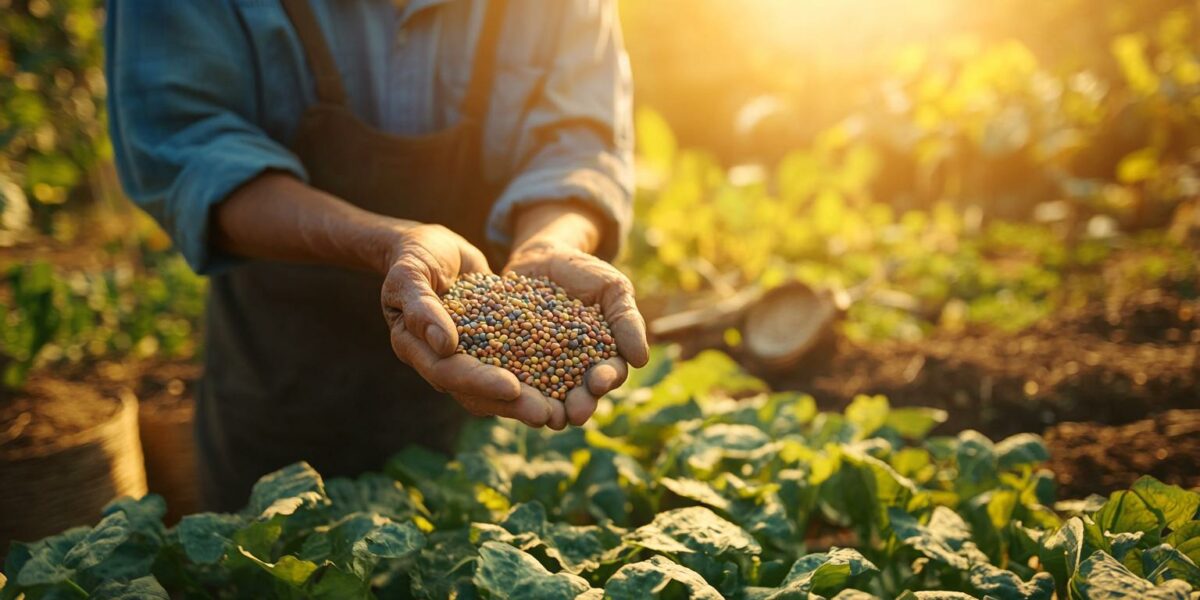The Impact of Industrial Agriculture on Seed Evolution
Modern agricultural practices have significantly altered the natural evolution of plants, favoring high-yield crops over those resilient to environmental changes. This shift, driven by industrial farming methods, has prioritized uniformity and productivity, often at the expense of adaptability and resilience in the face of climate change.
Researchers at the University of Vermont stress the importance of diverse, locally adapted crops cultivated by smallholder farmers. These traditional seeds, known as landraces, are crucial for future food security.
According to evolutionary biologist Yolanda Chen, smallholder farmers provide essential ecosystem services through their diverse seed selection, which helps crops adapt to various stresses such as drought and pests.
This adaptation is vital for sustainability as climate conditions continue to change. The focus on high-yield crops has created a divide between formal and informal seed systems, highlighting the need for a more integrated approach.
Challenges of Modern Seed Systems
Post-World War II, the rise of professional crop breeders has disrupted traditional evolutionary processes. Their focus on mass-producing high-yield seeds has led to a reduction in genetic diversity, making crops less adaptable to changing environments.
Unlike modern seeds, traditional landraces retain beneficial traits developed over centuries. These traits include natural defenses against pests and environmental stresses, which are crucial as the climate continues to warm.
Modern seed varieties often depend on external inputs like fertilizers and pesticides to thrive, creating a one-size-fits-all approach that is increasingly unsustainable. This dependency makes them vulnerable when conditions are less than ideal.
Key differences between seed systems:
- Formal seed systems: Focus on high yields and uniformity.
- Informal seed systems: Emphasize diversity and local adaptation.
- Ecosystem services: Provided by smallholder farmers through biodiversity.
Rediscovering the Value of Landraces
The solution to modern agricultural challenges may lie in the diverse landrace seeds stored by smallholder farmers worldwide. These seeds have been bred to thrive in specific environments, making them ideal for adapting to the unpredictable conditions brought by climate change.
Chen emphasizes that landraces hold traits that can help commercial varieties adapt to local conditions. These traits are integral to the seeds’ ability to withstand environmental stresses.
However, the issue is not just genetic but also socio-economic. Smallholder farmers, often in historically colonized regions, have had their contributions undervalued in modern agriculture.
Recognizing the global public good of seed diversity, there is a need to develop policies that support and value the work of these farmers, ensuring their knowledge and seeds are preserved and utilized.
Moving Towards Sustainable Agriculture
Chen and her colleagues are advocating for a shift in agricultural practices to prioritize evolution and biodiversity. This approach aims to integrate traditional farming insights with modern practices.
They propose policies that promote benefit-sharing, supporting smallholder farmers for their contributions to seed diversity. This includes incorporating their knowledge into the development of large-scale crop varieties.
This shift requires moving away from the current emphasis on yield and uniformity, recognizing that sustainability lies in embracing diversity and adaptability in our food systems.
By centering evolutionary processes and biodiversity in agriculture, we can create a more resilient and sustainable food system capable of withstanding the challenges posed by climate change.



John
Thx for the info! Gonna share this with my community garden group! 😊
Aria
This article raises some good points, but what about the economic implications of shifting away from high-yield crops?
JasmineDrifter
Wait, so modern farming is basically sabotaging our future? That’s insane! 😲
daisy7
Finally, someone is talking about this! Why aren’t more people aware of these issues?
olive1
This is shocking! Do you think we can reverse the damage already done to our crops?
DiegoLuminous
Traditional seeds for the win! 🌱 Thanks for shedding light on this topic!
Stella_Nova
Great read! But how do we convince large agricultural companies to adopt these practices?
hannah
Wow, this is eye-opening! How can we support smallholder farmers more effectively?